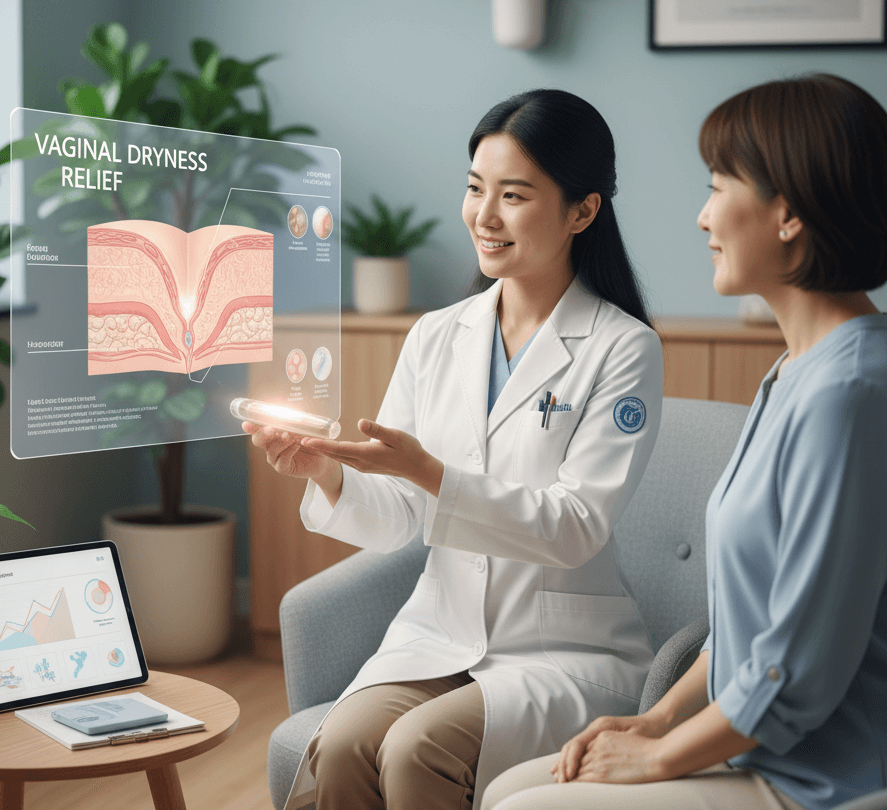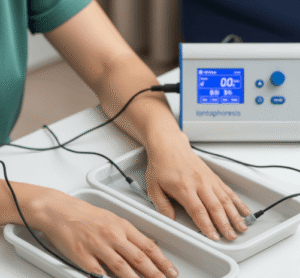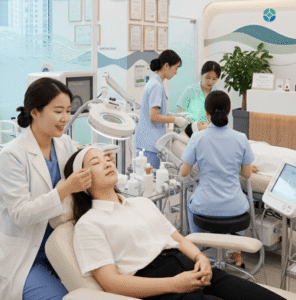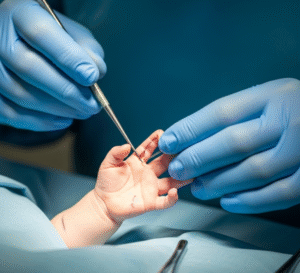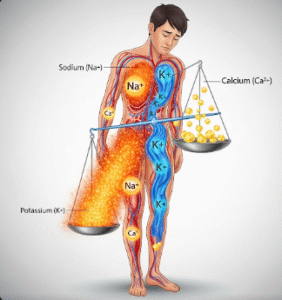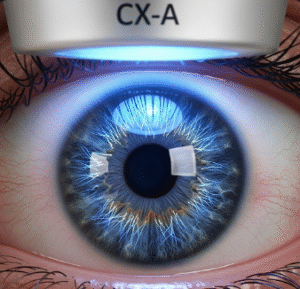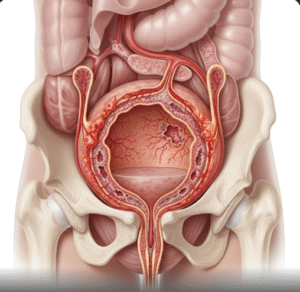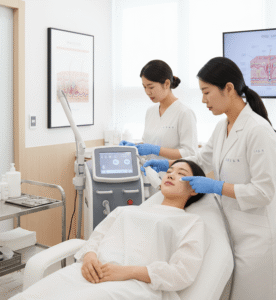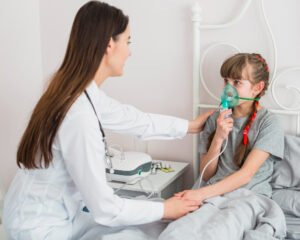What it is
Vaginal dryness is a common condition where the vaginal tissues lack sufficient natural lubrication, leading to discomfort, itching, burning, or pain during intercourse. It often occurs due to hormonal changes, but may also be linked to lifestyle, medications, or medical conditions.
Key points about vaginal dryness:
• Can affect women of all ages but is most common during and after menopause
• Symptoms include itching, burning, discomfort during intimacy, and frequent urinary issues
• May be temporary or chronic, depending on the underlying cause
• Treatable with medical, lifestyle, and therapeutic approaches
In Korea, vaginal dryness treatment is widely available in gynecology clinics, women’s hospitals, and specialized wellness centers.
Why it’s done
Treating vaginal dryness is important for both physical comfort and quality of life.
Main reasons for treatment:
→ Restores natural lubrication and reduces discomfort
→ Improves sexual health and intimacy
→ Prevents recurrent infections caused by dryness and irritation
→ Helps manage menopausal symptoms and hormone changes
→ Boosts confidence and emotional well-being
In Korea, doctors view vaginal dryness as an important part of comprehensive women’s healthcare, not just a minor inconvenience.
Alternatives
Not all cases require prescription treatments. Some women manage symptoms with alternatives or home remedies.
Alternatives include:
• Over-the-counter vaginal moisturizers and lubricants
• Lifestyle changes such as staying hydrated and reducing alcohol or caffeine
• Avoiding harsh soaps or perfumed products in the genital area
• Stress reduction techniques like yoga or meditation
• Natural supplements (ginseng, omega-3) with doctor’s approval
Note: These alternatives may relieve mild dryness, but persistent or severe symptoms should be medically evaluated.
Preparation
Preparation for vaginal dryness treatment ensures personalized and effective care.
How to prepare before consultation:
→ Keep track of symptoms: when they started, how severe they are, and any triggers
→ Note menopausal stage, childbirth history, or recent medical treatments
→ List medications, as some (like antidepressants or allergy drugs) may cause dryness
→ Be open to discussing sexual health, as intimacy is often affected
→ Bring previous test results if dryness is linked to hormonal or medical conditions
In Korea, many clinics offer confidential consultations, making it easier for women to openly share sensitive concerns.
How it’s done
Treatment depends on whether dryness is caused by hormonal changes, medical issues, or lifestyle factors.
Common treatment methods in Korea include:
• Hormonal therapies:
→ Vaginal estrogen creams, rings, or tablets to restore tissue health
→ Systemic hormone replacement therapy (HRT) for menopausal women
• Non-hormonal therapies:
→ Prescription moisturizers and lubricants for long-lasting hydration
→ Hyaluronic acid-based vaginal gels to improve elasticity
• Advanced therapies:
→ Laser vaginal rejuvenation to stimulate collagen and restore moisture
→ Radiofrequency (RF) therapy to improve circulation and elasticity
→ PRP (O-Shot) injections for tissue regeneration and sensitivity
• Lifestyle and supportive care:
→ Pelvic floor therapy to improve blood flow and muscle support
→ Nutritional counseling for a hormone-balanced diet
→ Counseling and sexual therapy if intimacy issues are present
In Korea, clinics often combine medical, advanced, and lifestyle treatments, offering women a comprehensive care plan.
Recovery
Recovery from vaginal dryness treatment is usually simple and involves gradual symptom improvement.
General recovery tips:
→ Use prescribed creams, gels, or therapies consistently
→ Stay hydrated and maintain a balanced diet
→ Avoid perfumed products and harsh cleansers in the vaginal area
→ Resume sexual activity only after medical clearance (if undergoing laser or PRP treatment)
→ Attend follow-up visits to monitor progress
In Korea, many clinics offer post-treatment check-ups and counseling, ensuring long-term relief and improved quality of life.
Treatment options in Korea
South Korea is highly regarded for advanced women’s healthcare, and vaginal dryness treatments are offered in a wide range of facilities.
Options include:
• University hospitals – comprehensive evaluation and advanced hormone therapies
• Private women’s clinics – specialized treatments with privacy and personalized care
• Aesthetic gynecology centers – offering laser, RF, and PRP-based rejuvenation therapies
• Wellness centers – holistic programs combining nutrition, therapy, and counseling
Highlights of vaginal dryness treatment in Korea:
→ Wide variety of options from simple moisturizers to advanced laser therapies
→ Government-regulated safety standards for hormone treatments
→ Non-invasive, quick procedures with minimal downtime
→ Integration of counseling and wellness programs for overall improvement
→ Multilingual services for international patients in major cities
Final Note:
Vaginal dryness treatment in Korea offers women a safe, effective, and holistic approach to restoring comfort and intimacy. With advanced medical therapies, non-invasive rejuvenation technologies, and supportive counseling, Korean clinics provide personalized care that addresses both the physical and emotional impact of vaginal dryness.

